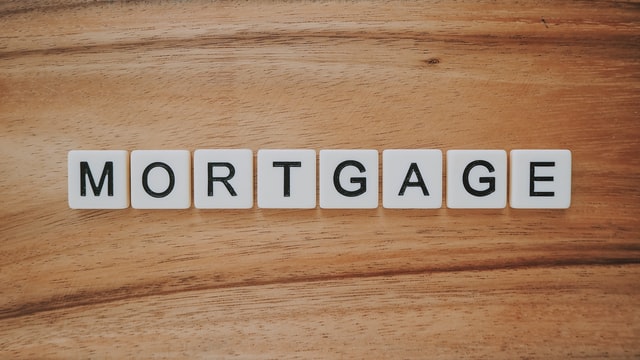Converting commercial property to residential isn’t always the easiest pursuit, and very much depends on the type of commercial property you’re looking to develop.
Given the rapidly changing face of the UK high street and commercial property in general, thanks to events of the past year or so, there has been a huge surge in demand for converting this type of property.
There is an argument to be had that commercial property was, by and large, changing quickly anyway. Shops, industrial units and other types of business premises had been changing use slowly but surely anyway and taking a walk down your local high street will give you an indication of how popular this is already.
Changing the use of commercial property into residential is lucrative too. When done correctly in the right area, there’s plenty of money to be made wither by converting the property and selling it straight away or converting it and renting it out as a landlord. This decision will have implications if you’re looking for finance too, as we’ll explain in greater detail.
What is planning permission?
 When you’re looking to convert any type of property, you’ll need the nod from the local authority to do so. This is known as planning permission and in most circumstances, you’ll need to submit your plans for converting the commercial property, residential property or any significant conversion for approval.
When you’re looking to convert any type of property, you’ll need the nod from the local authority to do so. This is known as planning permission and in most circumstances, you’ll need to submit your plans for converting the commercial property, residential property or any significant conversion for approval.
On most occasions it’s fairly straight forward to get planning permission for your property or your development, however, it’s always worth checking with your local authority and getting in touch with their planning department early.
Do I need planning permission?
The short answer to that is, probably, yes. There are some very specific circumstances which you may not need to apply for permission when converting your property, however, these are quite specific and limited. It’s worth talking to your local authority beforehand.
There are things known as Permitted Development Rights (PDRs) which are granted by Parliament rather than local authorities, however, the chances that you’ll be able to use this are slim.
Step One
You’ll need to check what type of property it is and whether it’s eligible to be converted into residential property. The vast majority of commercial properties are eligible for a residential conversion, however, there are circumstances where they’re not. If it’s in a conservation area, for example, a national park, an area of natural beauty or listed buildings. Before you purchase the commercial property or set concrete plans it’s worth checking that these exceptions don’t apply first.
Step Two
You’ll need to figure out what type of activity the commercial property is used for. This should be a number of things. Shops, for example, might be categorised as Class A. The list of classes is:
- Class A – This class is for shops, restaurants, and businesses that provide professional services
- Class B – This class is for offices, storage facilities and warehouses
- Class C – This class is for residential properties, and places of habitation, for example, hotels and care homes.
- Class D – This is for miscellaneous commercial properties such as schools, doctor’s surgeries, cinemas, and leisure facilities.
When you apply for planning permission, you’ll essentially be applying to change the class, and use, of the building from commercial to residential.
Step Three
You’ll need to figure out if you need planning permission. It’s true that when you’re planning to convert some types of commercial property you don’t technically need to apply for planning permission, however, these are only in very specific circumstances and you should assume that you do need it and should contact the local planning department to seek their advice.
Step Four
Now would be a good idea to sort out your finance or mortgage situation. There are a number of options, such as a mortgages designed for a landlord, or bridging finance whilst you convert the building before arranging a mortgage or mortgages.
We have an experienced team of brokers that can act as an intermediary on your behalf as a landlord or developer and confirm your options with you, which could include mortgages.
Step Five
Finding the right property that meets all of these criteria is key. Not all conversions will be appropriate for your plans. An office building, for example, may be in a key location but is it a listed building? Commercial property comes in many forms and, for example, industrial property may be harder to renovate or use for conversion.
You need to figure out what you’re looking to do with the property in terms of are you looking to immediately use the property for conversion and then sell? Or are you looking to keep hold and use it for residential purposes and rent them out?
These questions will inform your decision of what type of commercial property will suit your needs.
How to change use from commercial to residential
Primarily your budgeting will be key for converting a commercial property or premises. There will be, for example, solicitors’ fees, planning costs, architect costs and building costs. It’s crucial to have some kind of plan not only so that you know your timescales and the amount of money you’ll need, but because if you seek finance at a later point most lenders will want to see this level of detail.
Once you’ve sourced the commercial property you’re looking at for development, it’s then time to get in touch with the relevant solicitors and planning departments to see what level of detail you’ll need to provide to be approved, and then to get in touch with an architect who can develop the plans for you, before sourcing a builder.
Do I need Planning Permission under Permitted Development?
The Town and Country Planning (General Permitted Development) (England) Order 2015 states that you don’t require planning permission for “The enlargement, improvement or other alteration of a dwellinghouse.”
The general advice is, however, to ensure that you speak to the planning department at the local authority first.
Commercial to residential conversion cost
The cost of development for a commercial property can range hugely. If, for example, you’re developing a small office block then there are things to consider such as fire regulations and the need for each flat or dwelling to have its own lockable door. These regulations are usually best discussed with a solicitor, and a reputable builder can help give you a better idea and potentially quote you a rough cost.
Are there any grants for converting commercial property to residential?
In some very specific and strict circumstances you could possibly eligible for a grant from the local authority if the property could be classed as an empty property.
This is at the discretion of the local authority and there are strict terms, but you can usually find out if the property is empty or abandoned and therefore possibly eligible via the land registry website.
Work out office to residential conversion cost per square foot
You can use a quite simple mathematical process to work this out, and some lenders may ask you for your projected costs in this way. First, you’ll need to work out the Gross Internal Area (GIA) in square feet. You’ll then need to take away lobbies, stairs, toilets, etc that are required to stay and take it away from the GIA, which will give you a Net Internal Area (NIA).
Work out how much of your space is useable, so that’s how much can actually be used for flats and dwellings, and then work out how big you want your flats to be. Take your GIA and divide it by your costs, and then deduct your profit margin and this should give you a good idea.
Different ways to fund the conversion
There are a number of ways you can fund a housing project or commercial property of this type, such as a mortgage broker or bridging loan.
Bridging loans
Bridging loans are a type of loan that are designed to be short term. This could cover, for example, the initial cost of buying the land and materials before then agreeing a mortgage for your commercial property conversion at a later date. This type of loan is ideal for developers who need quick access to initial funding and our brokers can talk you through the process.
Self funded
If you have deep pockets and a good supply of cash at hand then this can be a good option, however, it’s probably worth keeping finance options open for unforeseen costs that can arise through the project.
Property mortgage
Some lenders may be willing to fund your entire project with a mortgage if you’ve got a decent sized deposit and a good track record as a developer, however, different lenders have different requirements so it’s advisable to speak to a broker or intermediary who can discuss this with you and let you know what you’ll need to be approved.
Our team of experienced brokers can give you the advice you need from start to finish.

